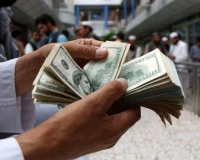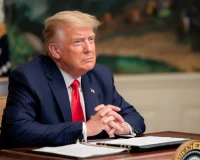US President Donald Trump signed an executive order early Friday morning amending reciprocal tariffs imposed on dozens of countries.
The White House said in a statement that all goods deemed to have been reshipped to avoid the applicable tariffs will be subject to an additional 40% tariff.
The order affects dozens of countries, including some that have reached a trade agreement with the United States, such as Japan, the European Union, and the United Kingdom.
Among the countries facing the highest "reciprocal" tariffs, Syria has the highest rate at 41%, while exports from Laos and Myanmar to the United States will be subject to 40% tariffs.
Tariffs of 39% and 30% will be imposed on Switzerland and South Africa, respectively.
For some Asian countries that have not reached a trade agreement with the United States, the recent executive order provided some relief by reducing tariffs.
The new tariff rates on imports from Thailand will be reduced to 19% from 36%, and on Malaysian goods to 19% from 24%.
The order indicated that countries not included in the order will be subject to an additional 10% tariff, while trading partners that have reached, or are close to reaching, trade and security agreements with the US will be subject to the revised tariffs until those agreements are concluded.
In a separate order, Trump raised tariffs on Canadian exports to 35% from 25%, effective today, excluding goods covered by the free trade agreement. This follows an earlier order raising tariffs on Brazil to 50% from 10%.
According to Bloomberg Economics calculations, Trump's latest actions raise the average US tariff rate to 15.2% from 13.3%, significantly higher than the 2.3% that prevailed in 2024, before he took office.
In total, the amendment order included higher tariffs on imports from approximately 40 countries, which will now be subject to a 15% tariff, and imposed even higher tariffs on products from approximately 12 economies










